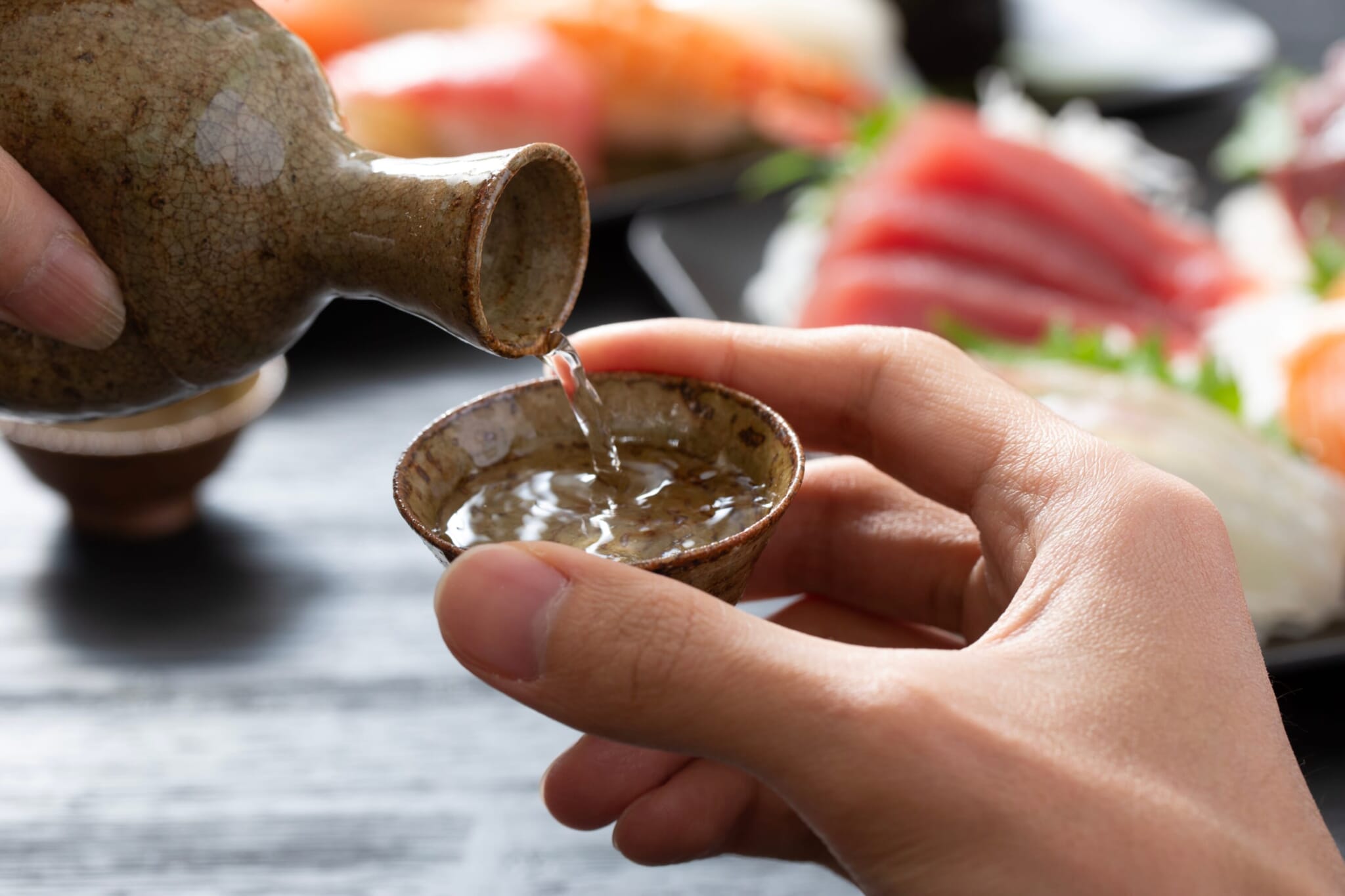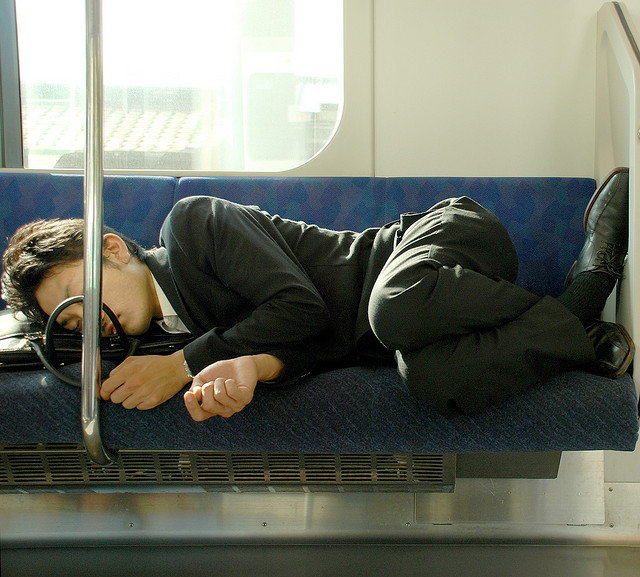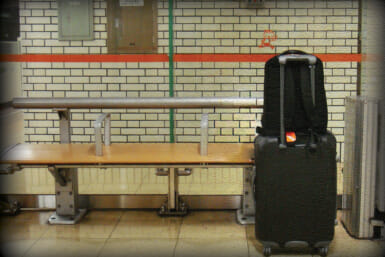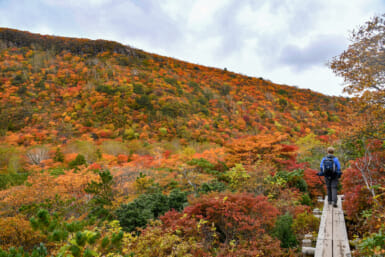In this week’s news roundup, we report on the decision by UNESCO to add Japanese sake brewing to its Intangible Cultural Heritage list. Also this week, an Australian woman is sentenced to six years in prison for smuggling drugs in Japan. A bear is finally captured after raiding a supermarket for almost three days. Hiroshima Prefecture’s Simose Art Museum is named the world’s most beautiful museum at the Prix Versailles. Naomi Watanabe and Yumi Suzuki Feature in BBC’s 100 Women 2024 List. And futehodo is Japan’s buzzword of the year.
Sake Is a ‘Divine Gift’ Says Japanese Ambassador to UNESCO
At an intergovernmental meeting in Luque, Paraguay on Wednesday, a UNESCO committee unanimously agreed to register Japan’s traditional knowledge and skills for making sake and other alcoholic drinks, such as shochu and awamori, on its Intangible Cultural Heritage list. Brazilian white soap and Palestinian olive oil soap were among the other cultural practices and products recognized by the committee. Sake brewing is the 23rd Japanese entry on the Intangible Cultural Heritage list. Previous entries include nogaku and kabuki theater, washoku cuisine and some local folk dances such as furyu-odori, added in 2022.
“Sake is considered a divine gift and is essential for social and cultural events in Japan,” Takehiro Kano, the Japanese ambassador to UNESCO, told The Associated Press. The technique to ferment rice into an alcoholic drink was developed in ancient China before it spread to Japan. Made using rice, water, yeast and koji, the brewing process takes about two months. It’s then matured for somewhere between six months and a year before brewers ship the final product. The brewing process, which involves carefully controlling temperature and humidity, requires a lot of skill.
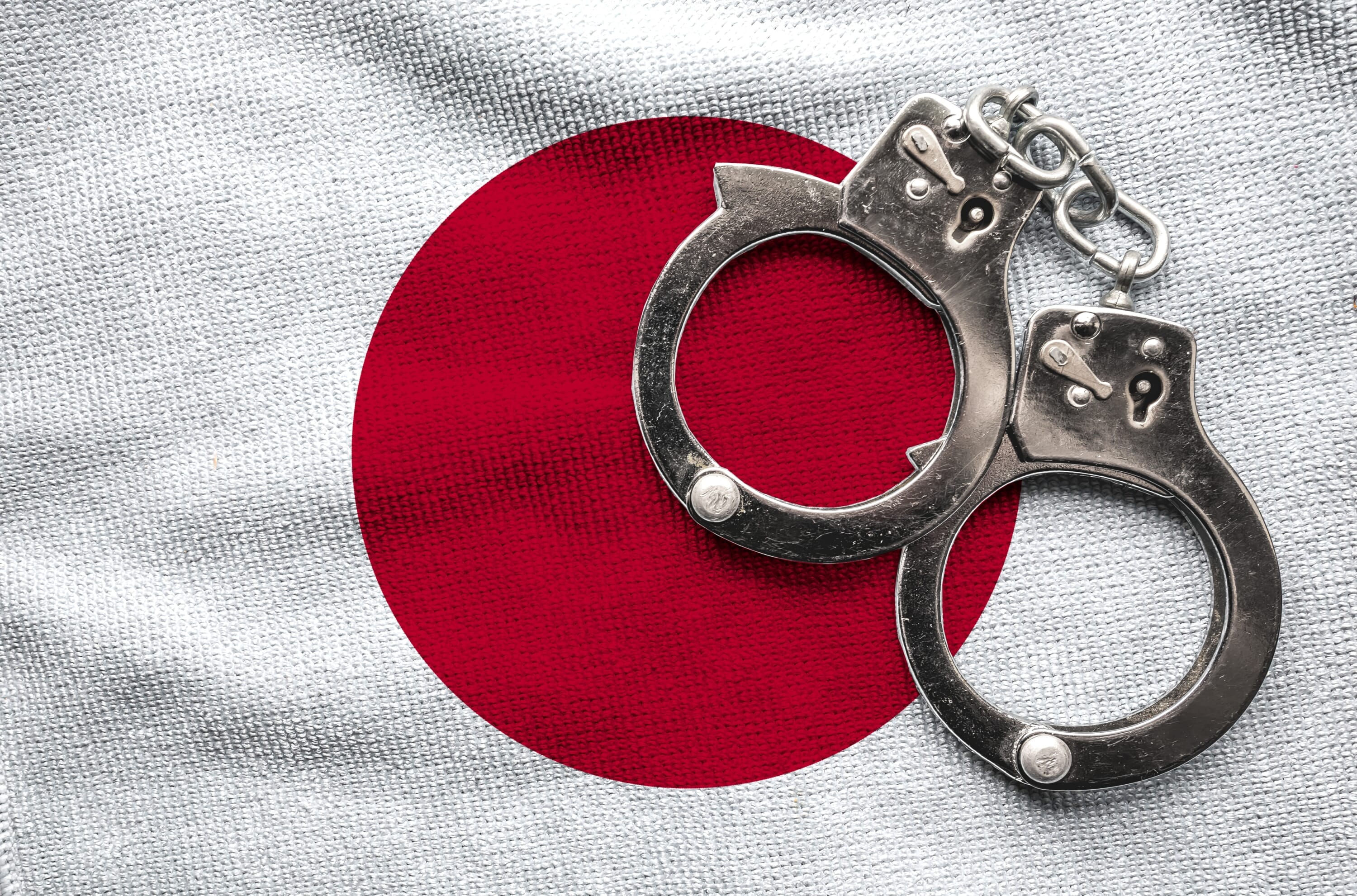
Australian Grandmother Who Claims She Was a Love Scam Victim Sentenced to Six Years in Prison
On Wednesday, the Chiba District Court sentenced a 58-year-old Australian grandmother to six years in prison for smuggling 2 kilograms of methamphetamine into Japan. Donna Nelson, from Perth, claimed she had been the victim of an online love scam and told the court that she didn’t know the drugs were hidden in the suitcase. According to her testimony, a Nigerian man, known only as “Kelly,” who she says she was considering marrying, asked her to pick up the suitcase in Laos and bring it to Japan where he was due to meet her. He never turned up.
Presiding Judge Masakazu Kamakura accepted Nelson’s claim that she was tricked as part of an online love scam. However, he felt that she should have been aware that something was wrong with the arrangement and that there was a possibility that something illegal could have been hidden in the suitcase. He had a degree of “sympathy” for the defendant and subsequently imposed a shorter sentence than would be typical for the amount of methamphetamine she was smuggling. Prosecutors had been calling for a 10-year prison sentence and a fine of ¥3 million.
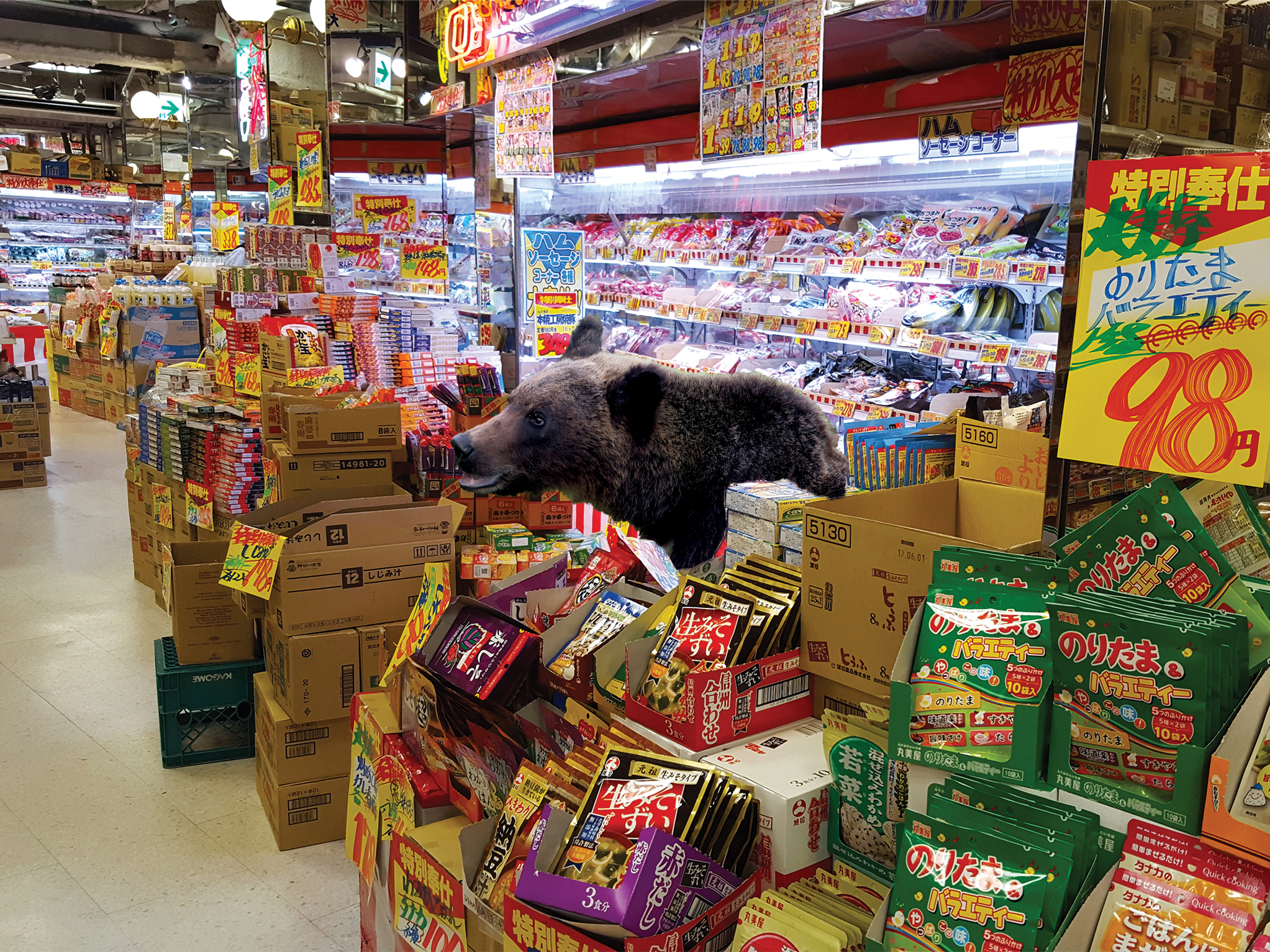
Bear Captured After Raiding Supermarket in Akita City for Several Days
A bear turned Akita city supermarket into an unusual battleground this week, attacking a worker and remaining for almost three days inside the store. The dramatic incident unfolded on the morning of November 30 at the Itoku Tsuchizaki Minato supermarket near Akita Port. The bear, about 1 meter tall, entered the store as 21 employees were preparing to open. It attacked a 47-year-old employee, leaving him with head and facial injuries. Heroically, a coworker found the injured man and carried him to safety outside, even as the bear lingered nearby.
Authorities sprang into action, but the bear proved elusive. Drones were deployed to scan the store, but the predator evaded detection until police spotted it in the backroom later that evening. The meat section was left in disarray, with shelves broken and products ransacked — evidence of the bear feasting on the store’s offerings. City officials sealed off two entrances and placed box traps baited with rice bran and honey at the other doors. At around 8:10 a.m. on Monday, one of the traps successfully ensnared the animal, bringing the standoff to a close.
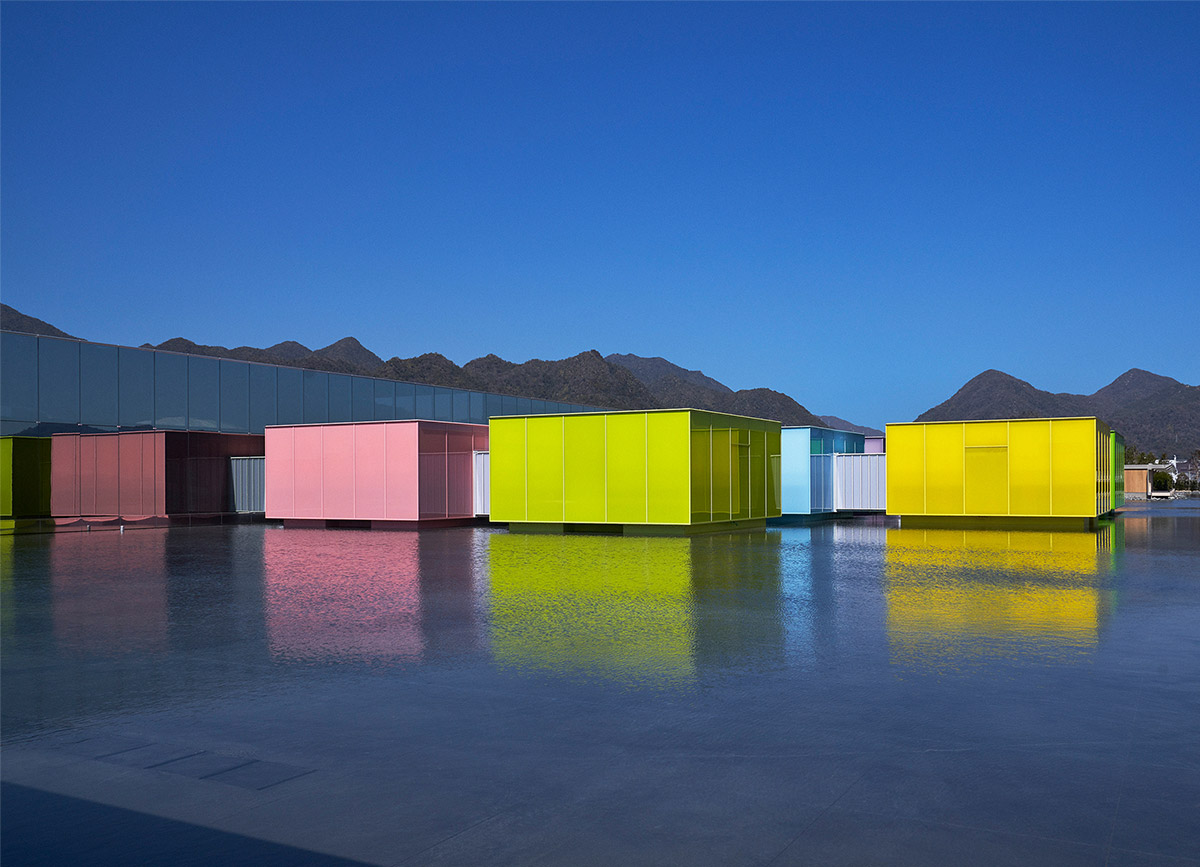
Simose in Hiroshima Wins World’s Most Beautiful Museum Prize at Prix Versailles
On Tuesday, Simose Art Museum, which opened in Hiroshima Prefecture’s Otake city in March 2023, was named as the world’s most beautiful museum at the Prix Versailles, the French world architecture and design awards that shine a light on the finest contemporary projects globally. The awards, which were established in 2015, are announced annually at the UNESCO headquarters in Paris. The museum category was added for the first time this year. Simose Art Museum beat off competition from six esteemed museums, including Warsaw’s Polish History Museum and Giza’s Grand Egyptian Museum.
Designed by Japanese architect Shigeru Ban, winner of the 2014 Pritzker Architecture Prize, Simose Art Museum is located on a 4.6-hectare site facing the Seto Inland Sea. It preserves and displays items collected by Marui Sangyo President Yumiko Shimose. Eight movable galleries sheathed in colored glass are arrayed on a water basin that can be rearranged to form different layouts depending on the exhibition. “It’s a great honor to win this year’s Prix Versailles award,” said Simose Art Museum’s PR official Hina Kawaguchi. “Our museum is a facility everyone can enjoy.”

Naomi Watanabe and Yumi Suzuki Feature in BBC’s 100 Women 2024 List
The BBC released its 100 Women 2024 list on Tuesday, featuring a wide range of inspiring and influential females from around the globe, including Japanese comedian, fashion designer and body-positive advocate Naomi Watanabe, who was born in Taiwan but raised in Ibaraki Prefecture. She rose to fame in 2008 due to her impersonation of Beyoncé. Japan’s most popular Instagram influencer, with over 10 million followers, she has, according to the BBC, “broken down barriers in male-dominated Japanese comedy,” while also “helping to change body stereotypes in Japan.”
The other Japanese name to feature was Yumi Suzuki, who was born with cerebral palsy. She was forced to have her uterus surgically removed when she was only 12. Under Japan’s eugenics law, 16,500 disabled people were forcibly sterilized after the war. It was eventually repealed in 1996. In July of this year, the Supreme Court ruled the practice unconstitutional and ordered the government to pay compensation to the victims. “I don’t want money,” said Suzuki. “I want people to know what happened to us. To make sure it never happens again.”

Bemusement as Futehodo Is Named Japan’s Buzzword of 2024
On Monday, Futehodo — a shortened version of the popular drama, Futekisetsu ni mo Hodo ga Aru! (Extremely Inappropriate!) — was named as Japan’s buzzword of the year. Sadao Abe, who played the lead role in the series, received the award at the ceremony in Tokyo’s Chiyoda ward. It’s the first time in 11 years that a drama-related word has been selected for the Grand Prize. In 2013, “baigaeshi,” meaning “double payback” from the TBS Sunday drama Hanzawa Naoki and “jee-jee-jee,” from the NHK TV series Amachan, were two of four winners.
This year’s winner took many people by surprise. “Huh? What is Futehodo? I’ve never heard of it before, haha,” wrote one user on X. “Seriously, I understand everything there except for Futehodo,” posted another. The drama, which aired between January and March, is a comedy about time travel. Ichiro Ogawa (Abe), a foul-mouthed PE teacher and single parent who has raised his daughter alone since his wife died, travels through time from 1986 to 2024. Sociologist Sakae Sakisaka (Yo Yoshida) and her son head in the opposite direction.
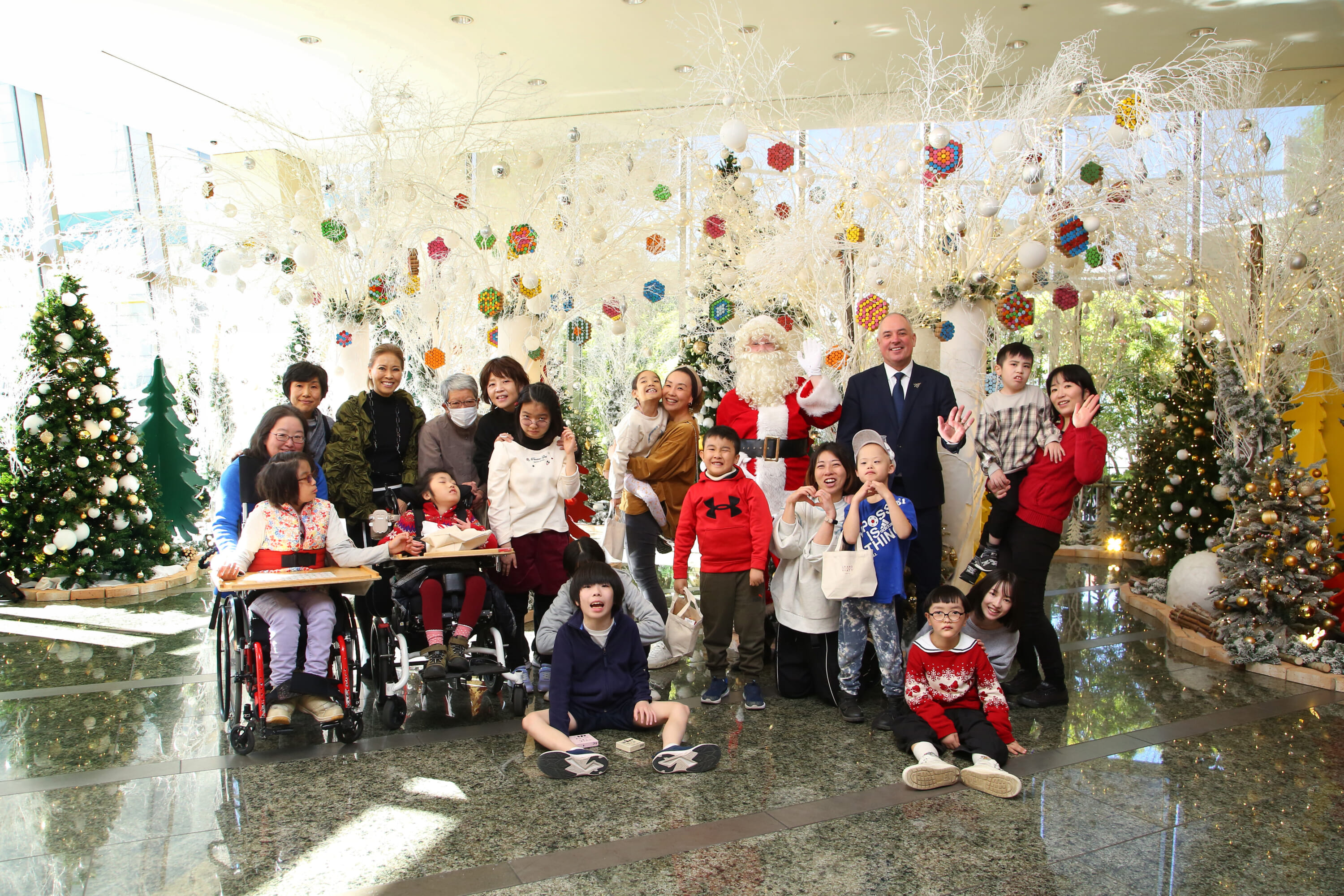
Charity Children’s Event at Grand Hyatt Tokyo
In some heartwarming news this week, the Grand Hyatt Tokyo welcomed 21 students from Aiiku Gakuen, a local special needs school, for a charity event. The children arrived in two separate groups and were greeted by Santa Claus in the first-floor lobby. Each child was given a Christmas present from St. Nick to take home. They also helped to decorate the tree. The ornaments they hung up were made by people with disabilities at the nonprofit organization Re Kikou. They were made by reusing wine and Champagne corks gathered by the hotel.
The event began in 2016, but was suspended in 2019 due to the COVID-19 pandemic. It started up again in 2021. This year’s theme was “Love for Our Future,” with a display that featured sustainable cork ornaments in the colors of the UN Sustainable Development Goals.

